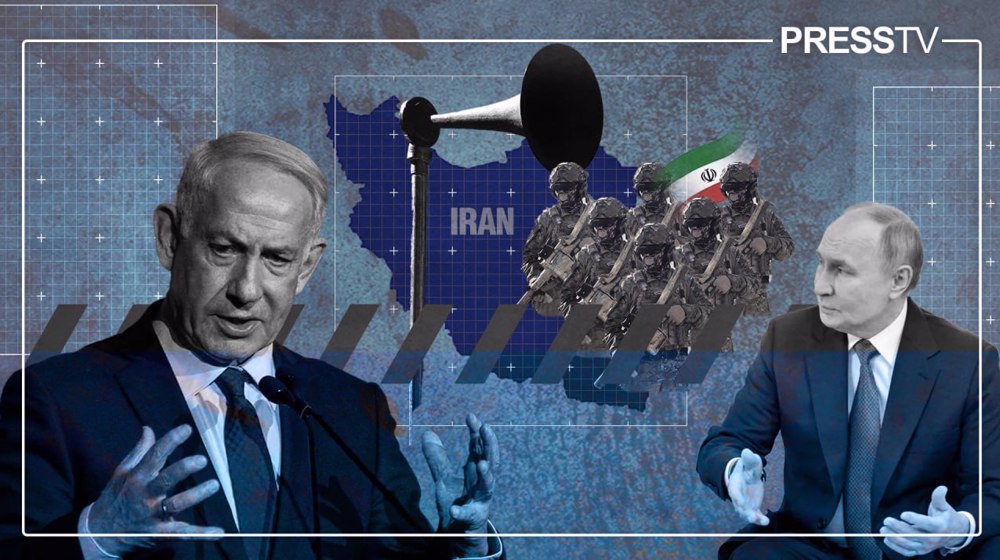By Hamid Javadi
Iran’s top diplomat acknowledged receiving a message from Israel, reportedly passed along by Russian President Vladimir Putin, suggesting that the regime does not seek a new war.
On the surface, the message might sound like a welcome shift toward de-escalation in a region perpetually on edge, as Israeli regime leaders, backed by the United States, appear determined to bomb their way toward the illusion of an ever-expanding “Greater Israel.”
But scratch beneath the surface, and the message starts to look less like an olive branch and more like a calculated maneuver, possibly a ruse, a tactical deception.
Putin’s statement came months after a 12-day Israeli war of aggression against Iran. On day one of the unprovoked war in mid-June, Israel assassinated many senior Iranian military commanders and nuclear scientists, just two days before Iranian diplomats were scheduled to hold a sixth round of indirect talks with their American counterparts in Oman to reach a nuclear deal.
The timing of the aggression, clearly intended to sabotage diplomacy, is precisely why Iran cannot—and will not—take Israel’s message at face value.
Foreign Minister Abbas Araghchi was unequivocal. “They (Israelis) had claimed they don’t want a new war and confrontation with Iran,” he told the national broadcaster. “This does not influence our calculations. The likelihood of deception from the regime remains very high.”
Israeli leaders were indeed left astounded by the devastating power of Iran’s ballistic missiles, which penetrated the regime’s much-hyped multilayered air defense systems and wreaked havoc on Israeli towns and cities in retaliation. But that does not mean they would not potentially resort to what military experts call “strategic deception.”
Iran must not change its posture and should instead focus on Israel’s actual behavior, military movements, and field evidence. The Israeli regime has a long history of using strategic deception to gain tactical advantage over its adversaries on the battlefield.
Israel’s September 9 airstrike targeting Hamas leadership in Doha, Qatar, was a textbook example. The blatant attack, which drew widespread international condemnation, came as Hamas leaders had gathered to review a ceasefire proposal for Gaza put forth by the United States.
The Israeli regime, with US help, planned the surprise attack when it knew Hamas leaders were least expecting it. Who would bomb negotiators while they’re meeting to discuss your proposal, mediated by your most important ally?
Just as Israeli leaders used ceasefire talks with Hamas as a diversion, its message to Iran might be a smokescreen—a tactical feint to lull Iran into a false sense of security while regrouping for future acts of aggression.
The message also coincided with a ceasefire deal with Hamas in Gaza, where more than 68,000 Palestinians have been killed in two years of genocidal war that has left most of the besieged territory in ruins and displaced nearly all its residents.
While the ceasefire in Gaza brings relief to Palestinians and offers a glimmer of hope for the region, neighboring countries, especially Iran, must remain alert to potential new Israeli conspiracies. After all, who would believe that Benjamin Netanyahu, whom even many Israelis hold responsible for unnecessarily prolonging the war on Gaza for political gain, has suddenly turned toward peace?
Why should Iran trust a man who has spent decades spreading lies about its civilian nuclear program and fed the International Atomic Energy Agency (IAEA) fabricated intelligence, all in an effort to drag the United States into war?
Netanyahu first accused Iran of seeking to build a nuclear bomb back in 1992, when, as a member of the Israeli Knesset, he claimed Iran was “three to five years” away from developing nuclear weapons. That warning has been his refrain for more than thirty years and counting.
During his first term as prime minister in 1996, Netanyahu publicly labeled Iran’s nuclear activities as a major threat to Israel and global security.
A few years later, at the height of the US invasion of Iraq, he testified before Congress, insisting that Iran, not Iraq, was the real danger. In his second term, he ramped up the rhetoric, calling Iran’s nuclear program the gravest threat to Israel’s existence.
In 2012, Netanyahu famously held up a cartoon bomb diagram at the United Nations General Assembly, warning that Iran was approaching a “red line” in uranium enrichment.
He fiercely opposed the 2015 Joint Comprehensive Plan of Action (JCPOA), commonly known as the Iran nuclear deal. In a speech to the US Congress, arranged without White House approval, Netanyahu argued that the deal, which placed limits on Iran’s nuclear activities in exchange for sanctions relief, would only clear a path for Tehran to build a bomb.
Netanyahu later persuaded Trump, whom he has often called the best friend Israel has ever had, to withdraw from the JCPOA during his first term. He continued to claim that Iran was mere months, or even weeks, away from a nuclear weapon, urging the US to launch a preemptive strike.
Then came the military aggression of June 2025, when Netanyahu convinced Trump to join Israeli strikes on Iran’s nuclear facilities, a request Trump readily granted.
Netanyahu’s push to embroil the US in a war with Iran has been unwavering for over three decades. A sudden shift from that narrative is, at best, a hard sell.
Israel’s message that it does not seek further war may well be a tactical pause, an opportunity to rebuild its battered defense systems, give its exhausted military a breather, and allow Netanyahu time to shore up his fragile coalition following two years of genocidal war in the region.
Iranian military leaders have declared their full readiness for any eventuality and vowed a crushing response to any reckless military adventurism by the Israeli regime or its Western backers.
Hamid Javadi is a senior Iranian journalist and commentator based in Tehran.
(The views expressed in this article do not necessarily reflect those of Press TV)
